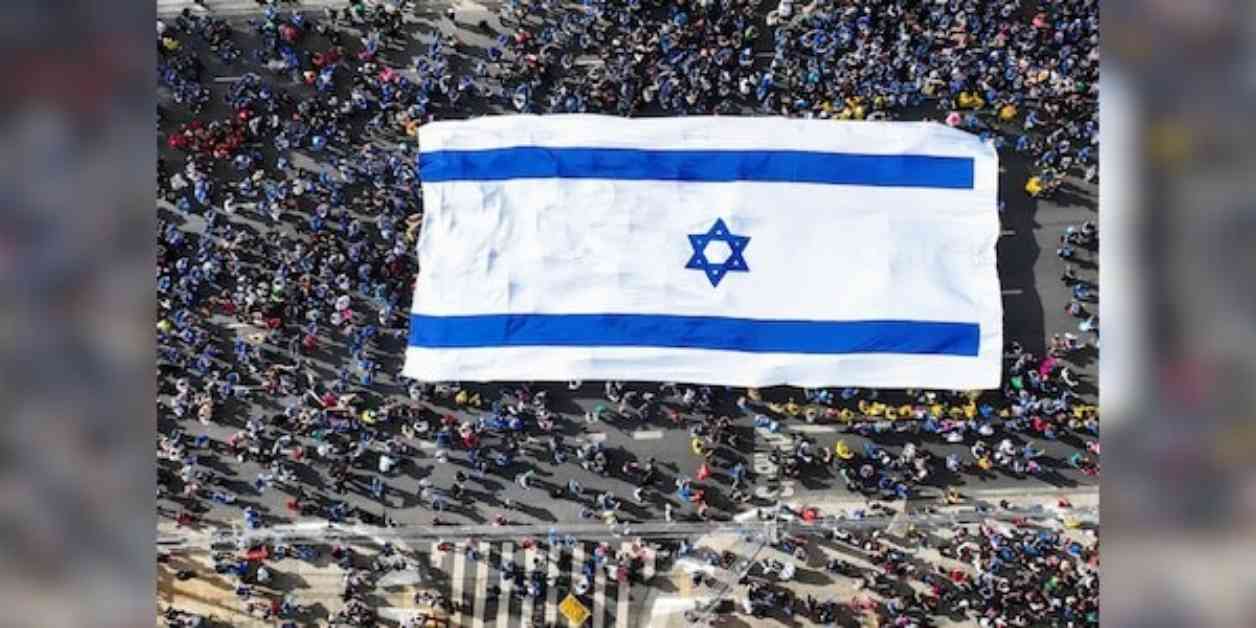Title: Israel Labor Union Calls Strike Amid Growing Pressure for Hostage Deal
The head of Israel’s largest labor union, Arnon Bar-David, has called for a general strike on Monday to exert pressure on Prime Minister Benjamin Netanyahu’s government to secure the release of Israeli hostages still held by Hamas in Gaza. This move comes as thousands of protesters have taken to the streets in support of the hostages’ families and to demand action from the government.
Bar-David, who leads the Histadrut union representing hundreds of thousands of workers, has garnered support for the strike from Israel’s main manufacturers and entrepreneurs in the high-tech sector. The unity displayed by some of the most influential voices in Israel’s economy underscores the widespread public outrage over the deaths of six hostages, out of the 250 individuals seized by Hamas militants on October 7 last year.
“We must reach a deal on the return of the surviving hostages. A deal is more important than anything else,” Bar-David emphasized at a press conference. “We are receiving body bags instead of a deal.”
Israel confirmed earlier that the bodies of the six hostages were recovered from a tunnel in southern Gaza, where they were killed shortly before Israeli troops reached them. As a result of the strike, Ben Gurion Airport, Israel’s primary air transport hub, will be closed from 8 a.m. on Monday, with municipal services in Tel Aviv also experiencing disruptions.
The Israel Manufacturers’ Association has expressed its support for the strike and criticized the government for failing in its “moral duty” to secure the safe return of the hostages. Association head Ron Tomer stressed, “Without the return of the hostages, we will not be able to end the war, rehabilitate ourselves as a society, and begin the process of rebuilding the Israeli economy.”
Former Prime Minister Yair Lapid, who currently leads the opposition, has also thrown his support behind the strike action, further highlighting the widespread discontent and demand for action from the government.
Protests have erupted across Jerusalem and Tel Aviv, with thousands of demonstrators blocking roads and gathering outside Netanyahu’s residence. The Hostages Families Forum, representing the families of those held in Gaza, has blamed Netanyahu for the deaths of the six hostages, alleging that his failure to secure a deal with Hamas led to their tragic fate.
“They were all murdered in the last few days, after surviving almost 11 months of abuse, torture, and starvation in Hamas captivity,” the Forum stated, reflecting the anguish and frustration felt by the families of the hostages.
Gil Dickmann, a relative of one of the slain hostages, called on Israelis to mobilize and pressure the government to take action. “Take to the streets and shut down the country until everyone returns. They can still be saved,” Dickmann urged on social media, capturing the sense of urgency and desperation felt by many.
Despite the return of the bodies of the six hostages, there are still 101 individuals being held in Gaza, with Israel suspecting that a third of them may no longer be alive. Netanyahu and his government, along with their supporters, remain steadfast in their opposition to any deal that would involve releasing militants from Israeli prisons and potentially strengthening Hamas’s position.
Aerial footage has shown Tel Aviv’s main highway blocked by protestors holding flags bearing images of the slain hostages, underscoring the depth of emotion and solidarity among the Israeli public. Shiri Elbag, whose daughter is among those held in Gaza, expressed both gratitude for the protesters’ support and disappointment that it took such a tragic event to mobilize the masses.
“It’s true that (Hamas chief Yahya) Sinwar is the murderer, the father of all murderers, but ultimately Liri and I are citizens of Israel, and I appeal to Benjamin Netanyahu – it’s his responsibility and his job to bring them home,” Elbag emphasized, echoing the sentiment of many families affected by the hostage crisis.
Meirav Leshem Gonen, another parent of a hostage in Gaza, highlighted the dire situation faced by the hostages, stressing that their lives are at risk due to the ongoing military pressure. The urgency of the situation and the need for immediate action to secure the release of the remaining hostages cannot be understated.
In conclusion, the general strike called for by Israel’s labor union and supported by key sectors of the economy reflects the mounting pressure on the government to act decisively and swiftly to bring back the Israeli hostages held by Hamas. The public outcry, protests, and demands for action underscore the deep emotional impact of the hostage crisis on Israeli society and the urgent need for a resolution to prevent further tragedy. As the nation unites in solidarity with the hostages’ families, the government faces increasing pressure to prioritize their safe return and bring an end to this harrowing ordeal.






















